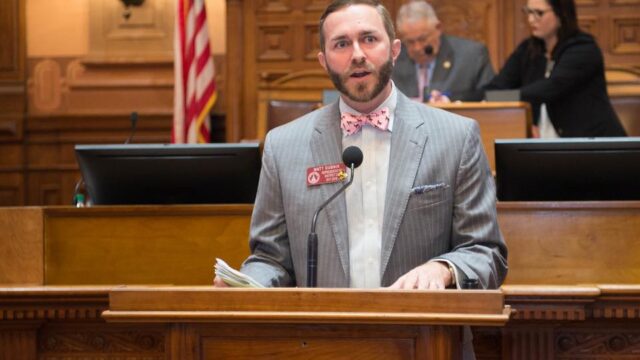State Rep. Matt Dubnik (R-Gainesville), member of the House Education Committee, is leading a movement to change the way Georgia’s state school superintendent is chosen.
Dubnik’s House Resolution 174 has four co-sponsors and calls for the state’s chief school officer to be appointed by the state school board instead of being elected every four years as is now the case.
The latest version reads, in part, “Proposing an amendment to the Constitution so as to provide for appointment of the state school superintendent by the State Board of Education effective not later than January 1, 2031, and other matters relative to the foregoing changes; to provide for the election of members of the State Board of Education for two-year terms by the members of the House of Representatives and Senate whose respective districts are embraced or partly embraced by each congressional district of this state; to provide for submission of this amendment for ratification or rejection; and for other purposes.”
Currently, state school board members are appointed by the governor. It would take voter approval of a constitutional amendment in a statewide referendum bring about these changes. That vote would be held in 2026.
Dubnik (pictured) tells WABE he believes the state school board should pick the state superintendent like local school boards pick their superintendents.
“We elect our local school board members, who then recruit and hire and appoint the local school superintendent,” he said. “It works for all 180 school districts that way, and it gives the governing authority to that local school board.” And he added his resolution means no disrespect who has ever held the office of superintendent.
In a statement to WABE, current State School Superintendent Richard Woods said the right to elect the state superintendent should not be taken away from Georgians. “Georgia parents, educators, business leaders, and taxpayers expect to have a direct way to weigh in on the state’s educational priorities, issues, quality, and direction,” he said.


